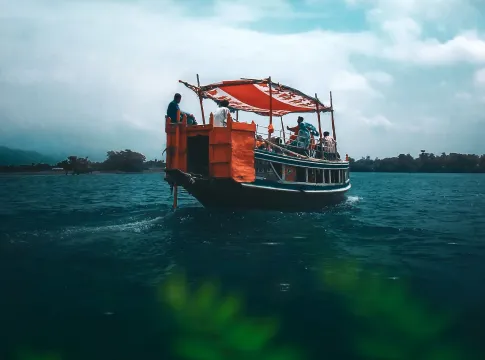Active banners: 0 Visible banners: 0
Adaptation - Floating Gardens of Bangladesh
Provided by: CLEAN |Published on: November 8, 2023
Articles/Websites
6-AP
Synopsis
- This video examines the challenge of climate change in Bangladesh, specifically the adaptations of citizens to the growing issue of flooding.
- Students will learn about several innovative engineering solutions to the dilemmas of sea level rise and changing monsoons, such as floating agricultural farms, schools, and communities.

Subjects: Earth and Space Sciences, Geography, Engineering
Authors: CLEAN, PBS
Region: Global
Languages: English
Teaching Materials
Positives
- Students will engage with this educational video since the narrator takes a hands-on approach to studying how indigenous people adapt to living with too much water.
- Students will view small animal farms and floating agricultural farms, schools, and communities.
- Teachers can share the video to a Google classroom, via social media, or as a link provided to students learning virtually.
- Support questions, activities, and a printable world map are available on the site.
Additional Prerequisites
- A few words in the closed captioning differ from the narration.
- Teachers may wish to have an introductory discussion about the word "adaptation" before showing the video.
- Students should have prior knowledge of both climate change and global warming.
- Teachers and students will need internet access.
- There is a lesson plan available for this Adaptation Series.
Differentiation
- Students in Social Studies classes can discuss the choice of becoming a climate refugee versus adapting to the changes in climate not only in Bangladesh but in many parts of the world.
- Science teachers can assign engineering research projects based on the video.
- English teachers can assign the video as a starting point for a summarizing paragraph writing activity.
- This video could support a class discussion of how engineering design offers answers to climate change questions.
- A floating school is prominently featured, so teachers can have students compare and contrast that school with their own.
Scientist Notes
Teaching Tips
Standards
Resource Type and Format
About the Partner Provider

CLEAN
The CLEAN Network is a professionally diverse community of over 630 members committed to improving climate and energy literacy locally, regionally, nationally, and globally in order to enable responsible decisions and actions. The CLEAN Network has been a dynamic group since 2008 and is now led by the CLEAN Leadership Board established in 2016.
All resources can be used for your educational purposes with proper attribution to the content provider.



